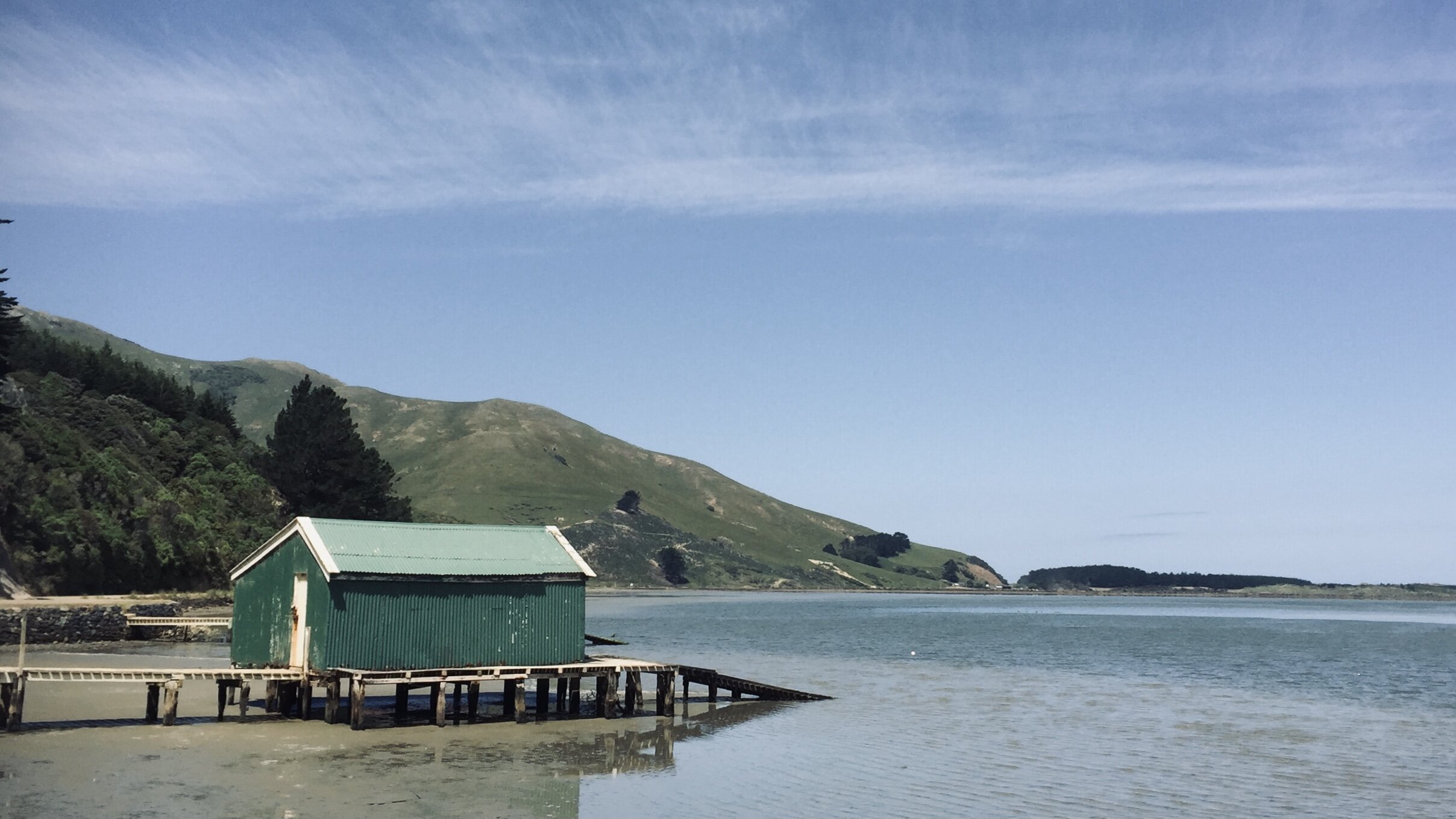
About
One of the questions people constantly ask me is: why German? Why Germany? So I’m going to take this opportunity to go back to the very beginning, a very good place to start.
Born in Ōtepoti Dunedin in Aotearoa New Zealand, my first taste of foreign languages came when I was ten and was asked to tutor a new Yemeni student. I can’t remember if I taught her anything, but she taught me some Arabic, and her family gave me my first glimpse into everyday life in a culture that was different to mine. I then made friends with a Korean classmate who was also willing to let me in on her language and culture. I was truly hooked. At high school I began learning German and Japanese. Then, after spending some time in Germany on a high school exchange in the winter of 2001/2002, I enrolled at the University of Otago, where I studied law, history, Japanese and German. I graduated in 2007 with a bachelor of arts degree with honours in German and wrote my honours dissertation on the works of Marieluise Fleißer.
I arrived in Germany at the end of 2006, after receiving a six-week scholarship to take the DAAD’s University Winter Course at the University of Leipzig, followed by the DAAD Semester Scholarship for Students Reading German, which allowed me to complete an exchange semester at Ruprecht Karls University in Heidelberg. After that, I went home briefly to finish my degree, but never really left Germany. The ever-generous DAAD subsequently awarded me a full master’s scholarship to study German-language literature at the Universität Hamburg, where I specialised in gender and culture, completing papers in a diverse range of areas, from Old German and early modern satire to narratology and cultural theories of shame, from representations of the Shoah and the literature of migration to Giorgio Agamben’s political philology, Paul Celan’s poetry, and the philosophy of Walter Benjamin.
I finished my master’s degree with what I would now consider a preliminary study on Bertolt Brecht’s Messingkauf (a fragment that was translated into English as Buying Brass in 2015). Der Messingkauf then became the focus of my doctoral studies, which I carried out at Johann Wolfgang von Goethe University, Frankfurt am Main, under the supervision of Prof Nikolaus Müller-Schöll, and with the material and non-material support of the Heinrich Böll Foundation in the form of a full doctoral scholarship. My thesis, which straddled the intersection of literary studies and history, philosophy and aesthetics, was awarded the highest mark, summa cum laude, and was published by the publishing house J.B. Metzler in late 2019 as Theater des Exils: Bertolt Brechts “Der Messingkauf’. Since then, I have been sporadically working on grant applications for a second major project on the German idea of the Südsee or South Seas, which I would like to develop more fully in the next few years. (And if you would like to know more about my research, please take a look at the Research page.)
I began working as a translator and editor while I was still studying in Hamburg and working for Prof Claudia Benthien and Prof Nikolaus Müller-Schöll as a research assistant. Translation and editing remained a sideline all the way through my doctoral studies. During this period, my clientele was mainly academic and commercial, and, when my scholarship came to an end in 2016, I joined Lennon.de Language Services as a Senior Business Translator on a permanent contract. It was during this time that I was really able to hone my translating and copyediting skills, above all due to the sheer volume of texts being flung at me. However, I missed the proximity to research, and in October 2018 I was hired by the publishing house Walter de Gruyter in Berlin, one of Germany’s most renowned academic publishing houses, to work as an Acquisitions Editor in the Languages, Literature and Culture department, primarily managing the English-language literary and cultural studies portfolio. .
Working as an Acquisitions Editor gave me an amazing opportunity to learn more about the worlds of scholarship and publishing both in Germany and in the Anglophone world, about funding structures and publishing workflows, and about other disciplines and fields. De Gruyter also sent me all around Germany, Europe, the UK, the US, and even Japan to attend conferences and to network with the world’s scholars. But giving birth to my daughter and spending most of 2020 both on parental leave and in lockdown gave me a chance to think about what I really wanted to do when I grew up, and, paradoxically, I realised that what I missed most working at an academic publishing house was the proximity to the actual content of research. So, in late February 2021 I left De Gruyter to set up my own business as a translator, editor, and publishing consultant. And in December 2021, after fifteen years in Germany, I left Berlin with my family and relocated to Pōneke Wellington, where I now live among the trees.
Since branching out on my own, I have been working almost exclusively with academic clients, but also with museums, NGOs, and theatre practitioners. Going forward, I would like to utilise my new-found independence to explore literary translation in more depth. If you would like to know more about my translation and editing philosophy and experience, please visit my Services page.
If the gargantuan essay above hasn’t answered all your questions, please get in touch!
